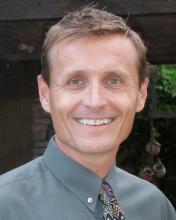
Simon Washington, of University of Queensland presented The Interesting and Risky Way in Which Transport System Risk Is Managed: A brief history and need for transformed thinking from 4-5 pm in 290 Hearst Memorial Mining Building on Sept. 29.
Abstract
The evolution of thinking around transport system risk management provides an excellent case study on how implicit and explicit assumptions can drive methodological development. Once methodological momentum builds, often these previously embedded assumptions are long forgotten, yet continue to drive methodology. It is fruitful to revisit and question these assumptions from time to time. This talk discusses the history of transport network safety management methodology from theoretical and empirical perspectives. It highlights some of the critical assumptions made along the way, and describes how and why these assumptions might be hindering further development and real improvement in our ability to prevent crashes. The recommended directions for future methodological development are identified and discussed.
Presenter
Simon Washington is currently Head of School of Civil Engineering at the University of Queensland. Previously he was the Transport and Main Roads Chair at the Queensland University of Technology. He is most interested in behavioural econometrics applied in the areas of transport safety and risk analysis, urban planning, evaluation, and travel behaviour. He is, or has been, Associate Editor of three international transport journals (ASCE J Trans Eng; Korean J Trans Eng; and the J of Anal Meth in Acc Res), Editorial Board Member of four journals (Acc Anal & Prev, Trans Res A and C, and the J Trans & Stat), and Founding Editorial Board Member of the J Sust Trans. He has authored or co-authored over 100 peer-reviewed journal articles and conference proceedings, a second edition of a textbook adopted in over 20 countries (1600+ citations), and six book chapters. He has been lead PI on more than $26 million of externally supported research and has secured nationally competitive Australian research grants from the Australian Research Council, the National Health and Medical Research Council, and Cooperative Research Centres programs, and in the US including the US National Academy of Sciences, the National Highway Traffic and Safety Administration (US), and the Federal Highway Administration (US). Prior to joining QUT, he served on the faculties of UC Berkeley, Arizona State University, the University of Arizona, and the Georgia Institute of Technology. He is a chronic and enthusiastic active traveller.
